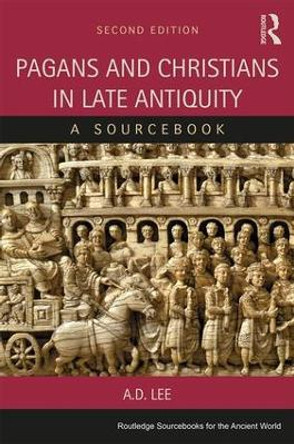Traditional and still prevalent accounts of late antique literature draw a clear distinction between 'pagan' and 'Christian' forms of poetry: whereas Christian poetry is taken seriously in terms its contribution to culture and society at large, so-called pagan or secular poetry is largely ignored, as though it has no meaningful part to play within the late antique world.
The Myth of Paganism sets out to deconstruct this view of two contrasting poetic traditions and proposes in its place a new integrated model for the understanding of late antique poetry. As the book argues, the poet of Christ and the poet of the Muses were drawn together into an active, often provocative, dialogue about the relationship between Christianity and the Classical tradition and, ultimately, about the meaning of late antiquity itself. An analysis of the poetry of Nonnus of Panopolis, author of both a 'pagan' epic about Dionysus and a Christian translation of St John's Gospel, helps to illustrate this complex dialectic between pagan and Christian voices.
Seeks to re-evaluate the role of 'pagan' poetry in late antiquity, arguing these poets were active participants and collaborators in the creation of late antique culture.About the AuthorRobert Shorrock teaches Classics at Eton College, Windsor, UK, and is co-editor of the journal
Greece & Rome.
Book InformationISBN 9780715636688
Author Robert ShorrockFormat Paperback
Page Count 192
Imprint Bristol Classical PressPublisher Bloomsbury Publishing PLC
Weight(grams) 310g








